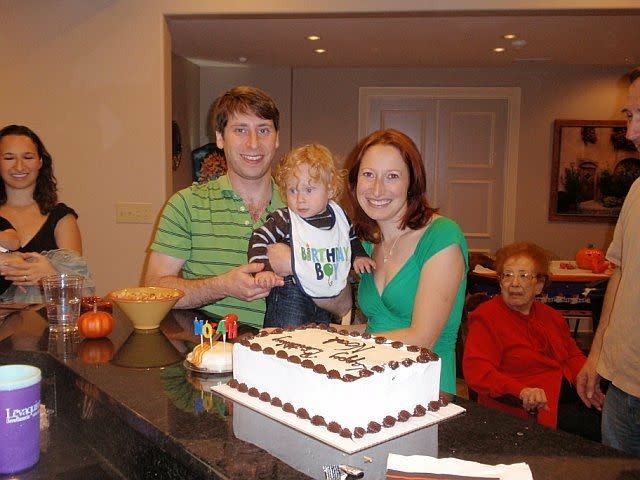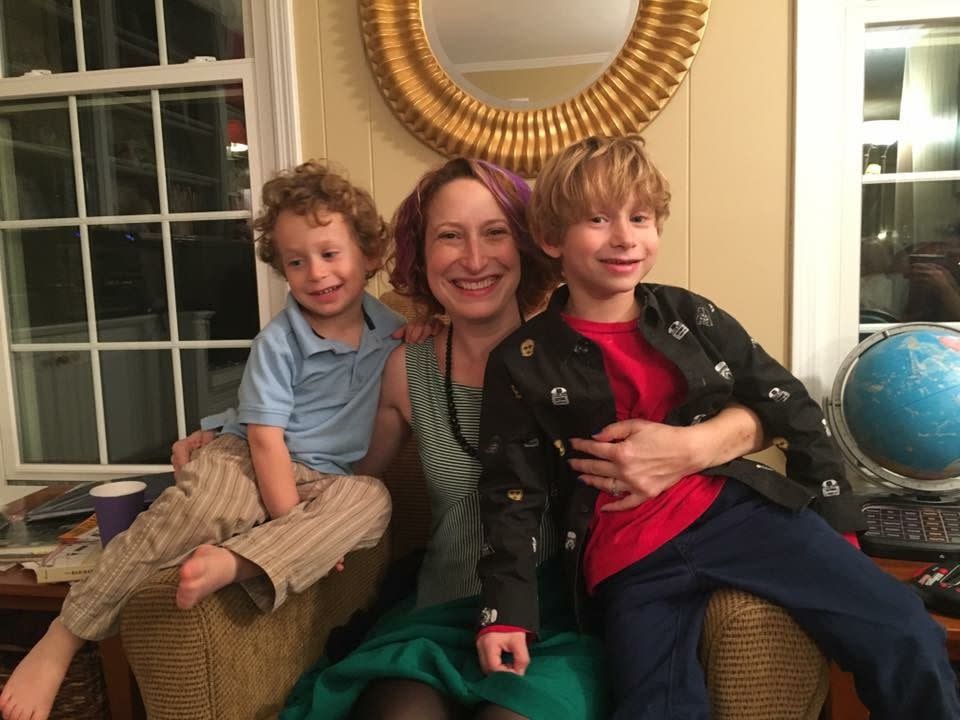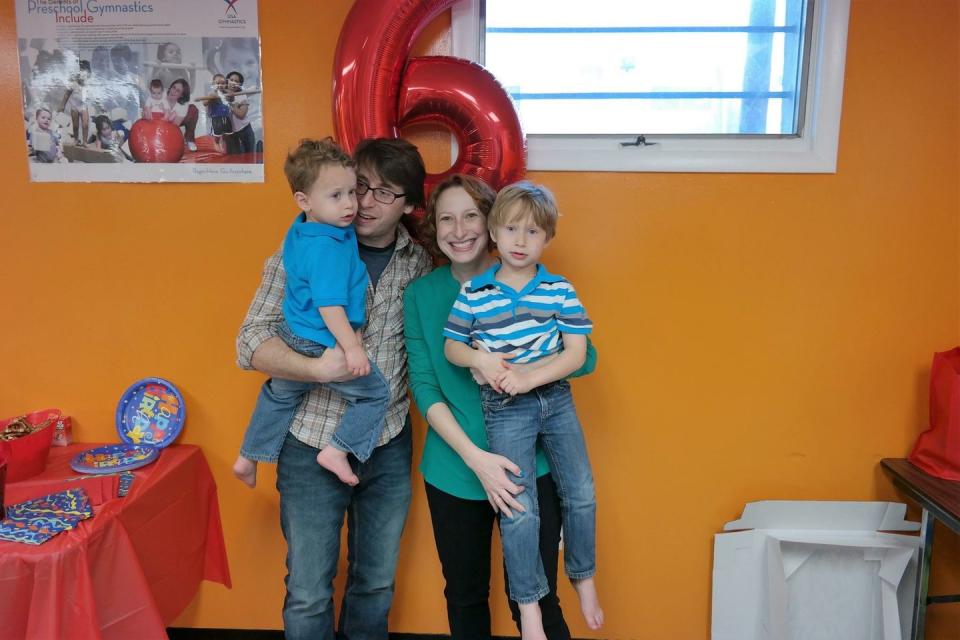I Didn't Know I Had Postpartum Depression
Within a few months after the birth of my son, I knew I was in a bad place. I realized I didn't feel the way my friends did or the way mothers were portrayed in TV shows and the movies — I didn't feel the way I was supposed to feel as a new mother. Instead of being overwhelmed by love, I was overwhelmed by unhappiness and anxiety. Feelings of helplessness and sadness consumed me. Those awful feelings — the ones you have at 2:00 in the morning and can't admit to anyone, least of all to yourself, began to push everything else out of my head. Worst of all, I thought about hurting myself and my son. And although I knew that postpartum depression existed, it never occurred to me that I had it.
According to the Centers for Disease Control, one out of nine women experience postpartum depression, or PPD. There are many reasons why I didn't recognize I had postpartum depression and why women in general don't realize their feelings are serious, sometimes even life-threatening. Here are some:
1. Postpartum depression doesn't always begin right after you give birth.
My depression didn't begin to become problematic immediately. For the first two months of his life, my son mostly slept, giving me the false impression that motherhood would be easy. However, within a few months, things began to implode. My period returned, radically changing my hormones. Worse, my son gave up sleeping and within weeks, the grueling, relentless sleep-deprivation caught up with me.
But because I wasn't a brand-new mom, I didn't think the term postpartum depression applied to me. I was wrong. According to the family health organization KidsHealth, "postpartum depression usually begins 2 to 3 weeks after giving birth, but can start any time during the first few days, weeks, or months post-delivery."

2. I thought my feelings could be normal.
I thought my feelings could be attributed to the "baby blues" and assumed I was merely experiencing what most women faced. According to the National Institute of Public Health, up to 80 percent of women experience symptoms of the common ailment.
If you're wondering how to differentiate baby blues from postpartum depression, New York City-based maternal wellness psychotherapist Rebecca Shaw, LCSW, has some advice. "PPD differs from the baby blues in that it's more attached to severity, timing, and duration," she says. "Typical symptoms include sadness, crying, appetite changes, sleep disturbance, anxiety, inability to concentrate or focus, irritability, hopelessness, guilt and shame, mood swings, loss of interest in activities, isolation, and feelings of worthlessness. If a mom finds herself saying 'this doesn't feel like me' she should listen to her instincts."
Of course, looking back, I should have known that suicidal ideations are not normal, but when you're having irrational thoughts, it's nearly impossible to think rationally.
3. I didn't think I could be depressed because I didn't have "real" problems.
With a loving husband and a healthy baby, I felt like I didn't have the right to be depressed. After all, how bad did I have it? I had a safe place to live and plenty of food which is more than a lot of new mothers had.
When Adele recently opened up about her struggles with depression, she was attacked online for daring to imply motherhood could be difficult. But depression is not something you earn or deserve; it's a mental illness. Is it easier to be a parent when you have money and can afford help? Absolutely – I'm not going to pretend like it isn't. But sleep deprivation is a very real contributor to depression and for many new parents, when their babies are bad sleepers (like mine was) it's a quick spiral into depression.

4. I could still function – how bad could my depression be?
I didn't think I could truly be depressed because I still did the things I needed to do to take care of my son. I dressed him. I fed him. I took him on walks, entertained him, and went on playdates. But I neglected myself. I rarely showered, ate junk food, and developed an addiction to prescription pills. I didn't think I mattered anymore but that couldn't have been further from the truth.
"Moms can have moments of functionality and still suffer with PPD," says Shaw. "The severity of PPD is very individualized. Many of the moms who are my clients work outside of the home and perform their jobs well even though they are suffering emotionally. Most moms report to me that they 'keep going' and this becomes their way of coping. I encourage my clients to slow down and take some time for themselves, as self-care is more important than some new moms realize."
Mental illness is a sliding scale; it's not an all-or-nothing thing. Feelings change, sometimes daily, so self-diagnosis is difficult, especially when you're dealing with the life-changing upheaval everyone faces after having a baby. Check in with yourself early and often about your feelings—it may make it easier to tell if you're merely experiencing the baby blues or if your mood has shifted toward something darker and more dangerous.

While it's not always easy to remember, you're not alone. You are not the only person who has experienced the baby blues or postpartum depression. Depressive feelings can often be shameful and embarrassing, but that doesn't mean you should keep them secret. In fact, keeping your feelings under wraps will only make things worse. Being honest with yourself, your partner, and close friends will allow you to get the help you need.
If you think you're suffering from postpartum depression, talk to your primary care doctor, your OBGYN, or a therapist. The earlier you treat your symptoms, the sooner you'll be able to care for your baby and yourself. It may not feel like it all the time, but you matter.
If you or someone you love may be suffering from PPD, find a list of treatment programs and specialists by state at Postpartum Progress.
Follow Woman's Day on Instagram.
You Might Also Like

